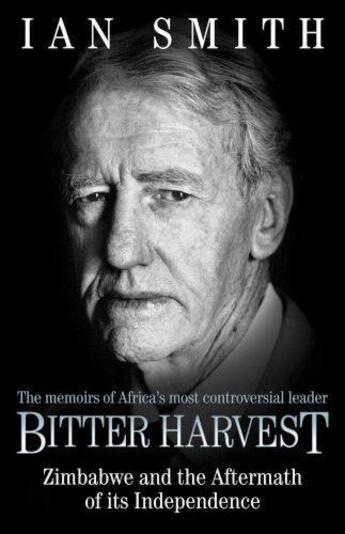-
Nombre de pages : (-)
-
Collection :
(-)
-
Genre :
(-)
-
Thème :
Non attribué
-
Prix littéraire(s) :
(-)
Résumé:
In July 2007, Zimbabwe's worsening economy saw inflation skyrocket to 7,634 per cent, deepening the already chronic food shortages in a country where only one in five of the adult population is in employment.Months later, on 20 November 2007, Ian Smith, the former Prime Minister of Rhodesia... Voir plus
In July 2007, Zimbabwe's worsening economy saw inflation skyrocket to 7,634 per cent, deepening the already chronic food shortages in a country where only one in five of the adult population is in employment.Months later, on 20 November 2007, Ian Smith, the former Prime Minister of Rhodesia died, leaving behind him a lifetime of resistance to black majority rule and the dangers that he believed it would bring to his country.Ian Smith was a man with the ability to excite powerful emotions in all who heard his name. To those who still revere his memory he was a hero, a mighty leader, a man whose formidable integrity led him into head-to-head confrontation with the Labour Government of Britain in the 1960s. To others, he was, and remains, a demon, a reactionary whose intransigence long delayed majority rule in an important corner of Africa.The last decades of the twentieth century and the first years of the new millennium have seen Zimbabwe spiral into a chaos of violence and towards the brink of economic collapse, prompting many to reappraise Smith's role and the prescience of his actions.In this revealing and important historical document, Ian Smith charts the rise and fall of a once-great nation. He tells the remarkable story behind the signing of the Unilateral Declaration of Independence, as well as the excesses of power that Mugabe has used to create the virtual dictatorship which exists in Zimbabwe today.
Donner votre avis















